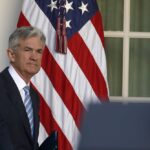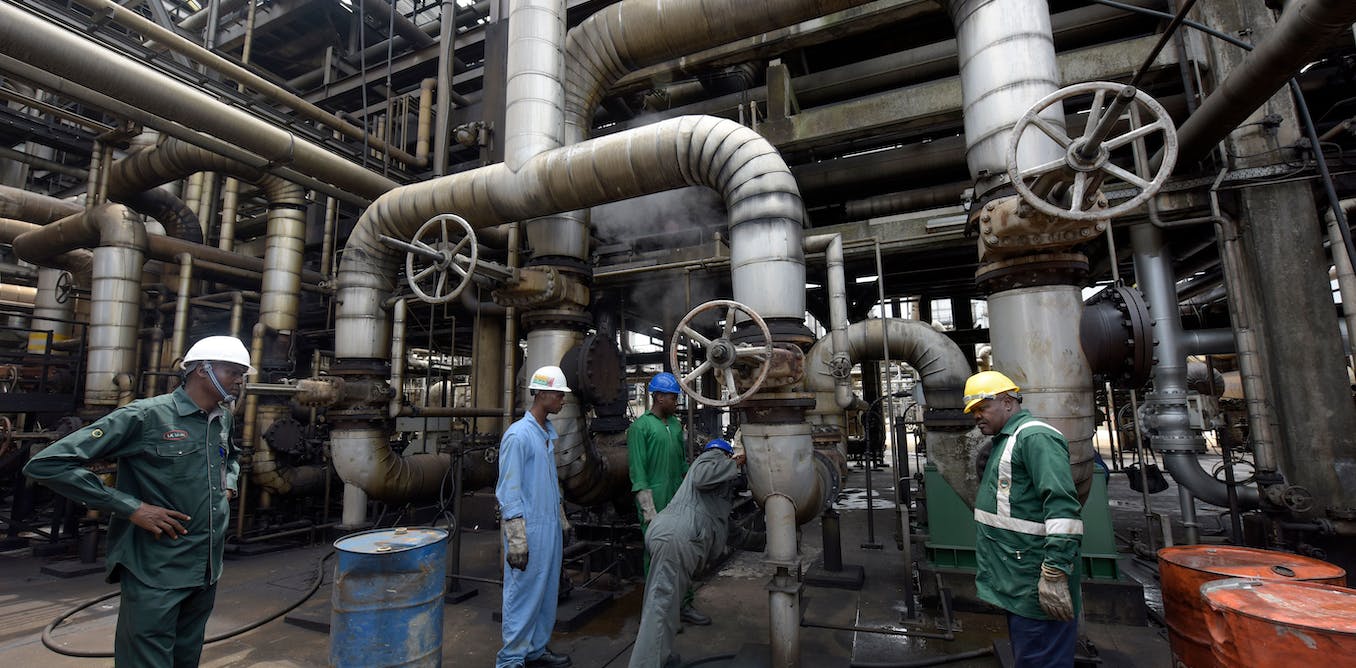Nigeria has always managed to attract foreign direct investment despite its poor economic outlook. This is thanks to its oil reserves and the consumption potential of its large population.
But these inflows of foreign investment have been in decline and now seem to have hit a halt. Over the past five years, foreign direct investment in Nigeria has dropped by almost 80%. This partly reflects a broader trend for the region: according to the African Development Bank, inward investment fell by almost 24% between 2019 and 2020. Investors around the world were also cautious about risky markets during the COVID-19 pandemic.
But foreign investment inflows to Nigeria had been falling even before the pandemic. The country’s net inflows based on balance of payments fell from about US$9 billion in 2012 to below US$1 billion in 2018.
So Nigeria’s 80% drop is steeper than the region’s, which suggests that there is another dynamic at play.
Economists have looked at a range of factors that contribute to a drop in foreign direct investment. These include institutional underdevelopment, property rights and country regulations.
In a paper published in 2020, I explored the role institutions play in determining foreign direct investment flows. I looked specifically at developing country contexts. I looked at three separate categories of institutions: civil and political liberties, freehold property rights and non-freehold (customary) property rights, with particular attention given to the two property rights.
My findings suggest that, in the case of Nigeria, in the short run, institutions have played a role in determining foreign direct investment. I found that the curtailing of land rights, in the form of the right to manage and the right to use, may have contributed to the fall in foreign direct investment inflows.
An example is the herder-farmer conflict which has spread from the northern part of Nigeria to the middle belt. This has impaired the right of farmers to manage their property. A knock-on effect is that potential investors in commercial farming ventures – or otherwise – may become cautious.
A slow unravelling
There have been drastic changes in the quality of Nigeria’s institutions over time. This goes as far back as pre-independence.
The Land Use Act of 1978 resulted in a rise in land disputes and litigation. During the 1990s military rule period, it became compulsory to renew certificates of occupancy – the legal documents that prove that a person owns land. The certificates are usually required to occupy the property on a daily basis, to sign a contract to sell it and to close a mortgage on it.
Then in 2018, the government announced plans to implement the Rural Grazing Area settlement programme to deal with conflicts between crop farmers and herders. This led to accusations that the government was grabbing land through the back door. The policy was suspended in 2019.
All these changes had implications for both freehold and customary land rights. But did that in turn affect investment?
The study found no evidence of a long-run relationship between any of the institutional variables and foreign direct investment. Surprisingly, freehold property rights did not play a significant role. Evidence generally points in the direction of secure property rights attracting investment, because multinational companies feel better protected and commercial farmers can make long-term plans. Examples include China and Zimbabwe.
The short-run – an empirical analysis that takes first difference of the data, to extract short-run attributes – evidence was that the relationship between civil and political liberties and foreign direct investment inflows was significant. So was the relationship between non-freehold property rights and foreign direct investment.
While the political institutions effect is expected, the customary (non-freehold) land rights, which is often neglected by policymakers, is surprising. In fact, this had the larger and only significant and positive relation to foreign direct investment.
What this suggests is that foreign direct investment inflows into Nigeria may react to changes in the quality of civil and political liberties, as well as customary property rights.
An even more interesting result was the significant role that the right to manage property played in attracting investment to Nigeria. This shows that while freehold property rights as a whole may not have a significant impact on investment in the immediate term, certain aspects of freehold property rights, such as the right to manage, are still important.
The right to manage property can involve managing tenants or appointing agents to do so. This is an example of how it affects foreign investment perceptions. The herder-farmer conflict may infringe on farmers’ right to manage their land and plan for long-term farming objectives, and potentially in other indirect ways as well.
Sustaining Nigeria’s economy
Nigeria has relied on the strength of its natural resources, population size and power as a consumer. Natural resources often water the punishment effect of other confounding factors for foreign direct investment drops. These are no longer able to sustain the country.
The curtailing of land rights, in the form of the right to manage and the right to use, may have contributed to the fall in foreign direct investment inflows.
It will not be easy to solve the herder-farmer conflict. But recognising the way it’s linked to investment, and dedicating resources to addressing it, may be the necessary first step. Acknowledging the role of flailing property rights due to herder-farmer conflict, and then signalling political will to take this on, would assuage fears by potential investors.
Economic theory suggests foreign investment inflows should bring about increased productivity, technological innovation and better allocation of resources. All of these should lead to positive structural change in the recipient country.
Diversifying the economy away from oil would protect inflows from global oil price shocks. Nigeria should create an environment attractive to not just oil-targeted investment, but also industries that leverage the size of Nigeria’s population and their consumption potential.










